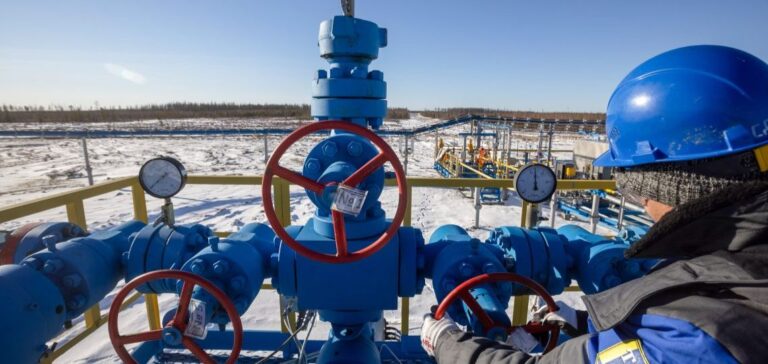Natural gas prices in Europe surged at the beginning of 2025, reaching their highest level in two years. Currently, the main European gas price benchmark, the Title Transfer Facility (TTF), stands at around EUR 47/MWh (USD 14.50/MBtu). Although this is well below the record levels observed following Russia’s invasion of Ukraine in 2022, prices remain roughly double their pre-crisis levels. This increase is attributed to reduced gas supplies, following the halt of Russian pipeline gas transit through Ukraine since January 2025, combined with the return of average winter conditions after two milder-than-usual years.
The situation has been exacerbated by a weather phenomenon known as “Dunkelflaute”—a prolonged period of low wind speeds and limited sunshine in November 2024. This led to an 80% increase in gas consumption compared to the previous year to maintain electricity supply. At the same time, global liquefied natural gas (LNG) supply growth remains modest, with an expected increase of just 5% in 2025, primarily driven by the expansion of North American facilities. However, the halt of Russian pipeline gas transit offsets this growth.
Storage levels under pressure
The European Union’s gas storage levels remain under strain, with volumes 24 billion cubic meters (bcm) lower than last year, adding further pressure on prices. To meet storage targets before the next winter, Europe will require significantly higher gas inflows than in the previous two years, increasing its reliance on global LNG markets. Governments across the continent continue efforts to protect consumers and ensure energy supply by implementing affordability support measures, storage obligations, and joint purchasing mechanisms.
Impact on industrial competitiveness
The economic consequences of high gas prices remain significant, particularly for energy-intensive industries. Since 2022, industrial gas prices in Europe have been, on average, 30% higher than in China and five times higher than in the United States. As a result, several industries have curtailed production, and some factories have closed. Rising gas prices have also contributed to inflation and increased energy poverty across the continent, further straining households and businesses.
Since 2022, 250 gigawatts of new renewable energy capacity have been added across Europe, helping reduce gas consumption by over 60 bcm in the electricity sector. Additionally, while heat pump sales have slowed, they have played a role in reducing gas demand during peak heating seasons, easing some of the supply pressure.
Outlook and upcoming challenges
Geopolitical instability and low gas storage levels suggest a challenging year ahead for the European energy sector in 2025. Market relief is not expected until 2026, when a new wave of LNG supply—mainly from the United States and Qatar—is set to reach global markets. However, this remains a long-term solution, and European governments will need to intensify efforts to improve energy efficiency, diversify supply sources, and enhance resilience in their energy infrastructure. Supply security remains a priority, with long-term contracts being considered to stabilise imports and mitigate market volatility.






















